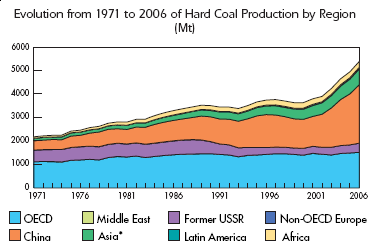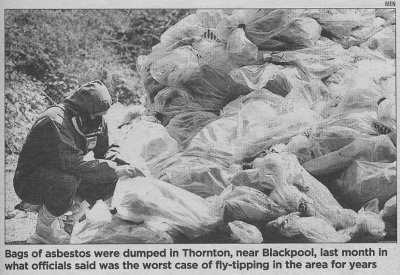Tim Worstall has challenged, in a recent post, the logic of the DfT's suggestion that Air Passenger Duty (APD) needs to be increased further to take full account of the contribution of aviation to carbon-emissions. By Tim's calculations, taking Stern's figure of $85 as the social cost of a tonne of carbon-dioxide emissions, the cost of carbon emitted by air travel is "around and about the amount currently charged" under the APD.
One could raise a number of reservations about this estimation, but let's say (for the sake of argument) that he is right. It raises interesting questions, either about Stern's calculations, or about this approach to welfare economics.
Tim cites approvingly the DfT's explanation of the principles underlying Pigovian taxation. The DfT does indeed reduce the idea to its most basic essentials, but it seems to me that the essence has been corrupted or lost to some extent in the act of reduction. Let me see if I can set out the idea clearly, so we can judge mechanisms like the APD for how well they embody the economic theory that underlies them.
Economics, if it treats only of monetary values, is subject to the Wildean criticism that it knows the cost of everything and the value of nothing. Economists have therefore felt it important to consider the impact of actions on utility (or, simplistically, happiness). Welfare is the notional sum of utility or happiness amongst a group (ignoring for the moment that it is ridiculous to aggregate something incommensurable like happiness). Welfare economics is the study of economics from the perspective of maximizing welfare.
In theory, if all participants in a transaction agree voluntarily to its terms, then they must all feel themselves at least to be no worse off from the transaction, and some of them presumably feel themselves to be better off, or why would they have agreed to it voluntarily? This satisfies the condition needed to demonstrate that an action has increased general welfare. By definition therefore, free markets increase welfare. This (and the inability to make the same case for coerced actions, such as those obliged by the state) is the basis of the libertarian philosophy.
In practice, however, it is often the case that people not party to a transaction may be affected by it. The classic example is a factory whose effluent is discharged into a river. No matter whether all parties engaged in commercial transactions with the factory-owner do so voluntarily, the contribution of the factory to the general welfare may be negative, if the benefit to the direct participants is outweighed by the impact on those who use the river downstream from the factory. The pollution of the river is, in the language of economists, an externality - a value (negative in this case, but they can be positive too) that is attributable to someone's activities, which they are not able to capture (if positive) or obliged to incur (if negative).
Externalities skew decisions, such that the options that provide the greatest benefit to society (maximize welfare) may not be the ones that offer the greatest benefits to the participants in transactions. The way to ensure that markets provide the optimal outcome for society is to internalize the externalities. In effect, this means ensuring that the party responsible for the externality is attributed the cost or value of that externality.
A Pigovian tax (named after Arthur Pigou, the Cambridge economist who first set out a detailed exposition of welfare economics) is a mechanism whereby the cost of a negative externality can be internalized to the producer of that externality. If the impact of the effluent from the factory results in losses to those downstream at a rate of £100/litre, a government may impose a Pigovian tax of £100/litre on the factory, so that the factory-owners' decisions take into account the full costs of any choice, and not just those incurred directly. The Pigovian tax provides an incentive for the factory-owner to minimize the discharge of effluent or even to locate elsewhere where the external costs of disposing of the effluent are lower.
However, the application of the Pigovian tax is not sufficient in its own right to ensure that welfare is maximized. It may be that the factory-owner has few feasible alternatives, and decides to continue to discharge and pay the tax. In that case, the damage (or disutility) to those downstream is no less than before, and the utility of the factory-owner has also been reduced by application of the tax. The utility of the government (or taxpayers generally) may have been increased by the revenue from the Pigovian tax, but it is not the government or taxpayers generally who were being harmed by the externality. The Pigovian tax can only be said to have achieved its objective if it represents an accurate valuation of the harm and if it is distributed as compensation to those on whom the harm is inflicted, proportionately to their share of the harm. In other words, a tax (or charge) cannot be said to be an effective mechanism to internalize externalities unless it either deters the externality or fully compensates those who experience the effect of the externality (or a bit of both).
Greenhouse-gas (GHG, or, in the vernacular, carbon) emissions are an externality. They are a particularly difficult example, because the impact of the harm is uncertain and because most of those who may experience the harm are remote, both geographically (e.g. inhabitants of vulnerable countries) and temporally (i.e. future generations). It is important that mechanisms to internalize the carbon externality reflect the remoteness and uncertainty.
If we applied that tax of £100/litre to the factory-owner in the above example, but recycled the revenues to him by some subsidy or tax-break, there would have been no point applying the Pigovian tax in the first place. Similar could be said if we recycled the tax-revenues to his customers - the amount that he had to increase his prices would be balanced by the extra amount that his customers were able to pay for them. The tax would be neither an effective deterrent, nor an effective means of compensating those who experience the harm. It would simply be an inefficiency in the market, perhaps effective at salving consciences, but of no real value. Indeed, if it is effective at salving consciences, it may exacerbate the harm, because customers may consume more of the good, freed (superficially) from the responsibility of considering the impact of their choices on those affected by the externality.
In the case of carbon emissions, most of us, metaphorically, own shares in the factory, and most of us live downstream. But some own more shares in the factory and suffer less of the impact of the pollution than others (e.g. rich world vs poor world, this generation vs future generations). If we impose a Pigovian tax on the factory, but recycle the revenues to those who own most of the shares, we have not effectively internalized the externality. We may have exacerbated the harm by letting the factory's customers think that they now need not worry about the impact of the factory's externalities. This is exactly what most of the rich-world mechanisms to internalize carbon externalities, including the APD, are doing.




 Here is Cameroonian Conservatism in action. If people are inclined to avoid paying for goods, get taxpayers to pay for them, so they appear to be "free" at the point of consumption, in order to reduce the temptation to commit unlawful acts.
Here is Cameroonian Conservatism in action. If people are inclined to avoid paying for goods, get taxpayers to pay for them, so they appear to be "free" at the point of consumption, in order to reduce the temptation to commit unlawful acts.